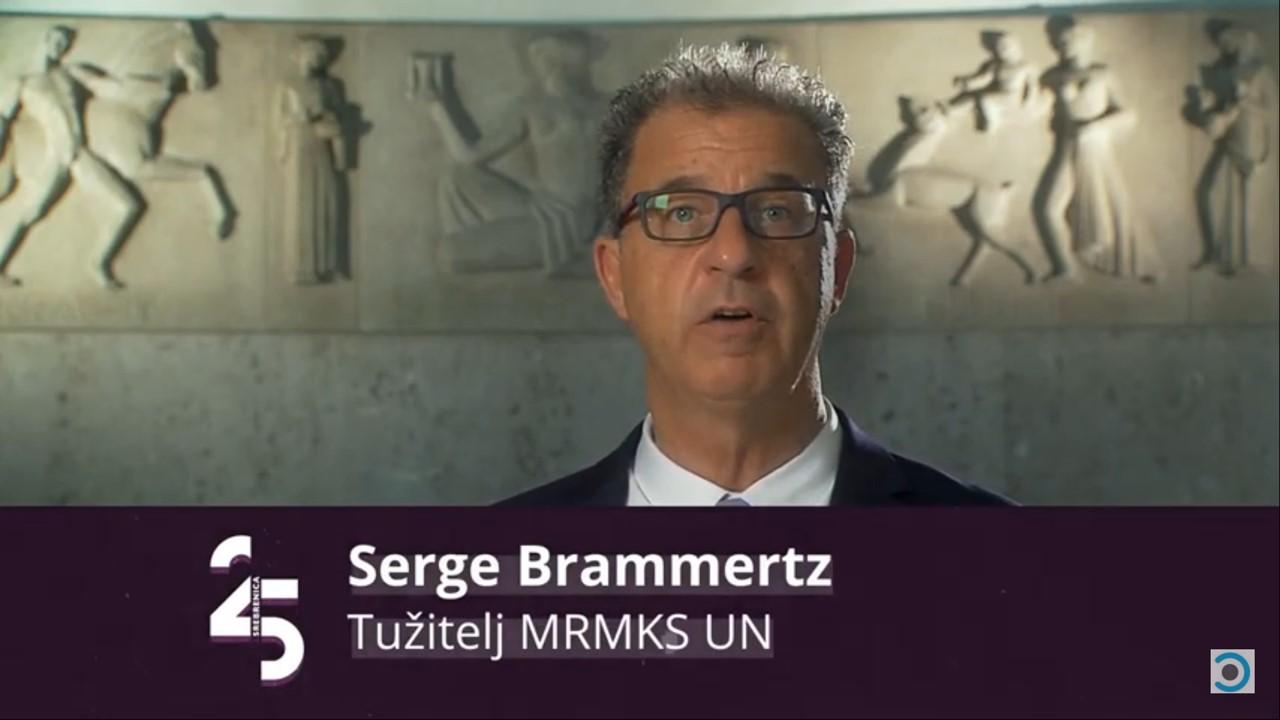The marking of the 25th anniversary of significant events from the war in the former Yugoslavia, including the Tuzla massacre, the Srebrenica Genocide and Operation Storm should be a time when communities commemorate the pain and suffering of all victims. Unfortunately, we all know that these anniversaries are more likely to be marked by the denial of crimes and glorification of war criminals, International Residual Mechanism for Criminal Tribunals (IRMCT) Prosecutor Serge Brammertz pointed out in a message at the opening of the exhibition and the campaign "Together Against the Denial Virus" at the SENSE Center in Pula
I am grateful for the opportunity to say a few words at the launch of the “Srebrenica 25: Together against the virus of denial” campaign.
This year marks the 25th anniversary of many significant events from the war in the former Yugoslavia, including the Tuzla massacre, the Srebrenica Genocide, Operation Storm and the signing of the Dayton Peace Accord. This should be a time when communities in the former Yugoslavia commemorate the pain and suffering of all victims. Unfortunately, we all know that these anniversaries are more likely to be marked by the denial of crimes and glorification of convicted war criminals.
Even after twenty-five years, many political leaders in the former Yugoslavia have not yet reached a level of mutual understanding to mark these events together. That is why civil society organizations remain critical. Your work plays an important role in securing a collective understanding of the past and, in turn, a more peaceful future.
The twenty-fifth anniversary of the genocide in Srebrenica is an opportunity to work towards reconciliation. This begins by accepting the facts and crimes established by the International Criminal Tribunal for the former Yugoslavia, the International Court of Justice and by national courts in the region. We must call the individual and collective destruction that took place in the summer of 1995 what it is: genocide.
Despite challenges, this makes the work of civil society organisations to promote justice, education, acceptance of the past and reconciliation even more critical. I commend the initiative of SENSE Transitional Justice Centre and its partners from Bosnia and Herzegovina, Croatia, Montenegro and Serbia in organising these innovative and virtual presentations and exhibitions to mark the 25th anniversary of the Srebrenica Genocide. I know your work will have impact.

